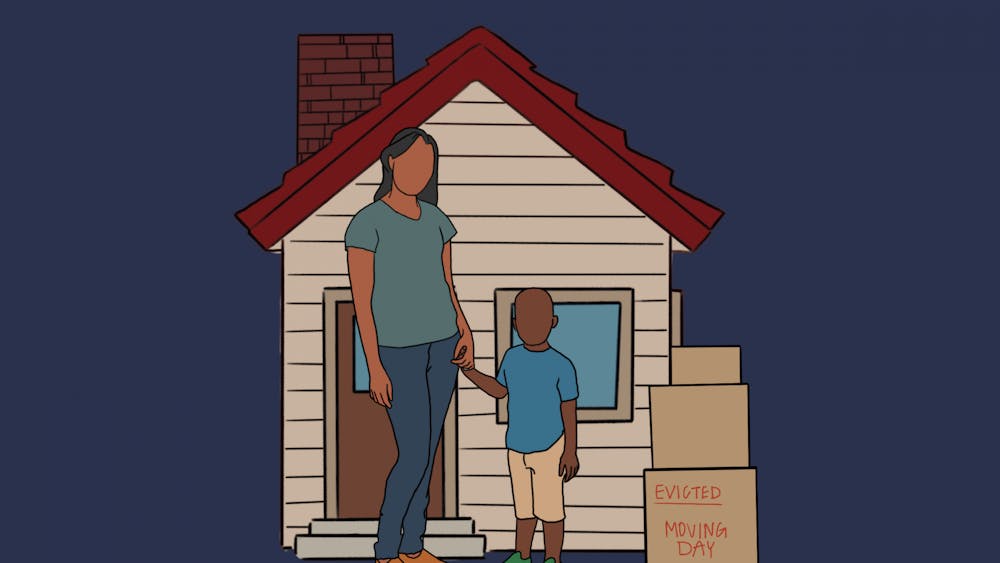Juniors Kristie Qiu, Magnai Davaadagva, Mackenzie Keller and Sasha Souki and sophomore Kenneth Guerra compiled their top 10 pieces of advice when planning an upcoming move.
Decide whether you want to be on or off campus.
The panel said the deciding factor for someone unsure of whether to stay on or off campus would be if they had a car.
Know your transportation limits, Souki said. If you do not have a car, pick a place with a bus route in the immediate area.
Davaadagva said for someone without a car, it would be easier to be close to campus for group work and commuting to class.
Consider if you need furnished housing.
For someone like Qiu, who is from out of state, she said she worries about transporting and storing furniture.
“Check to see if your apartment is furnished,” she said.
If there isn’t an easy way to store furniture, cut out a step by looking for furnished apartments.
Pick a place that offers maintenance.
“If something goes wrong, someone will be there,” Keller said.
One convenience of living on campus is the easy-access maintenance.
If something breaks, it can be fixed in a matter of one to three days, she said. Look for a location that offers free maintenance.
Think about what kind of roommate you want.
A roommate could affect whether or not your housing is a good or bad memory.
Though the cost benefit is one of the first things that comes to mind, Davaadagva said to think about what kind of person you want to live with before signing a contract.
Don’t just pick a random friend, he said. Decide what kind of experience you want.
Think about if you want someone to talk to, or someone who will keep to his or her side.
Decide if you can handle someone who is loud or messy.
Budget your living expenses.
Though you wouldn’t think moving involves immediate budget planning regarding living expenses, Keller said she thinks differently.
Evaluate your allotted money for the semester, subtract tuition and rent and give yourself a solid budget to live off of, she said.
Keep in mind a specific amount to subtract from.
“I wish I had and should have learned about budgeting,” Guerra said. “My first semester of freshman year I spent $5,800 on miscellaneous things around campus ranking from food to clothes.”
Qiu recommended budgeting at least $50 a week.
Beware of parking.
When moving, parking may not be your friend, Souki said.
“Parking isn’t ideal,” Keller said.
In the long term, think about where the nearest parking lot is from where you are living.
Sometimes with on-campus housing, there isn’t a place to park nearby.
Prepare for the trek into campus.
Living off campus does not allow you the luxury of running home and changing clothes when you get rained on, or grabbing an extra jacket when the weather changes unexpectedly.
“The practicality of an umbrella is something I shouldn’t have taken for granted,” Guerra said. “I wasn’t used to the lifestyle of walking to class in the rain, and the importance of having a good coat.”
Be aware that laundry may not be close by.
Keep in mind that with some locations, laundry may not be in your building. This was the case for Keller.
“It was not in my complex, it’s in the next one over,” she said. “I kind of wished someone informed me of this sooner.”
Qiu suggests using Campus Access to pay for laundry, if applicable.
Remembering her days in her McNutt dorm, she said there was a discount for using Campus Access rather than coins.
Look at a map.
Souki said there are many places to live, and some of them are relatively unknown.
“A lot of people forget about Campus View, Bicknell and stuff like that,” she said. “Go to a lot of places.”
With new buildings opening up, there are new options many students don’t know about.
Look at a campus map and see if there are any new residential centers that you don’t
recognize.
No matter what, be open minded.
Keeping a stress-free moving situation involves being open to change.
Keller said she advises anyone unsure of where to live to look around.
She said she lives in an old building from the late 1940s, and it is affordable because of its age.
While being in an older building may not be preferable, it could be a good alternative.
“The oldness of it is actually nice,” she said.





